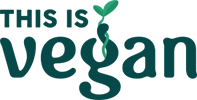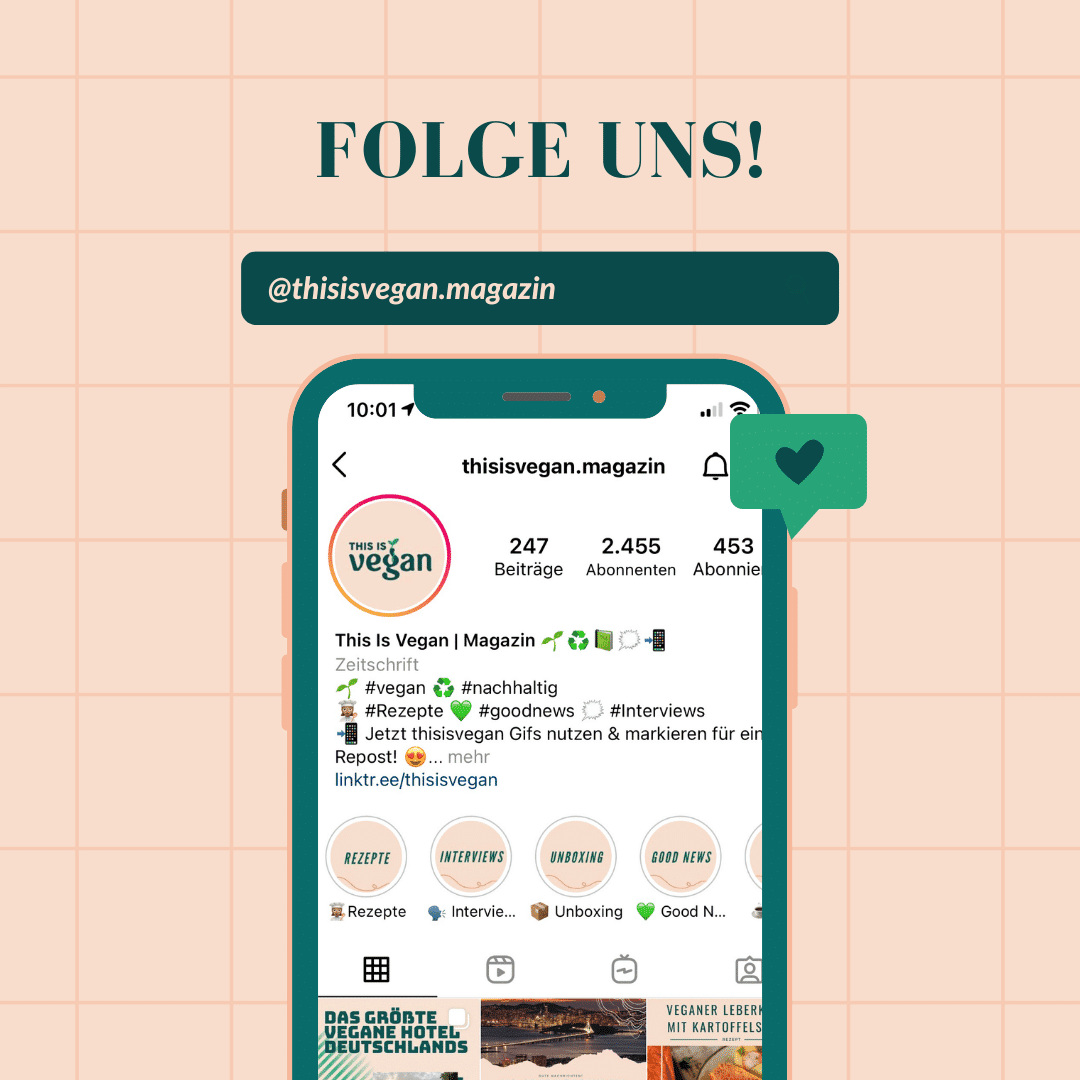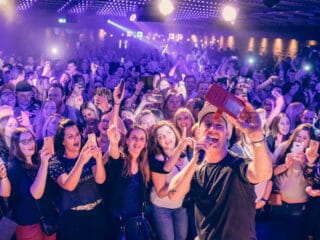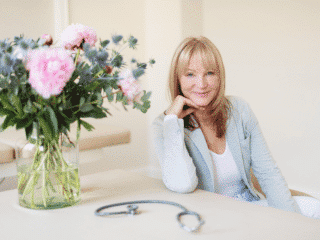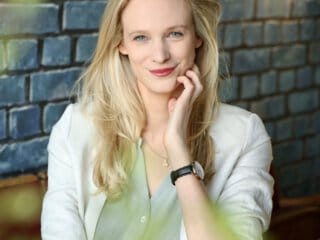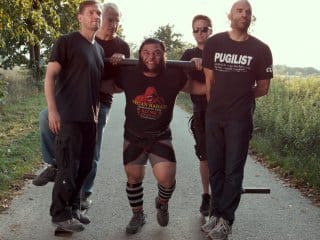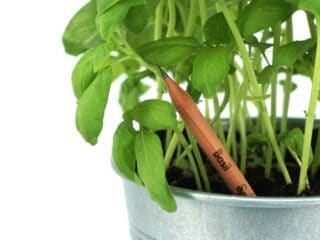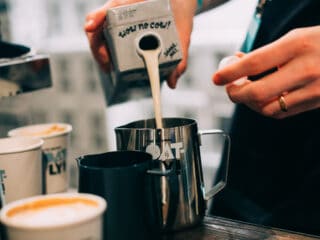A visit to the Papillon farm – Interview with founder Olivier Bieli
- Posted on
- 11 minute read
- Yannick
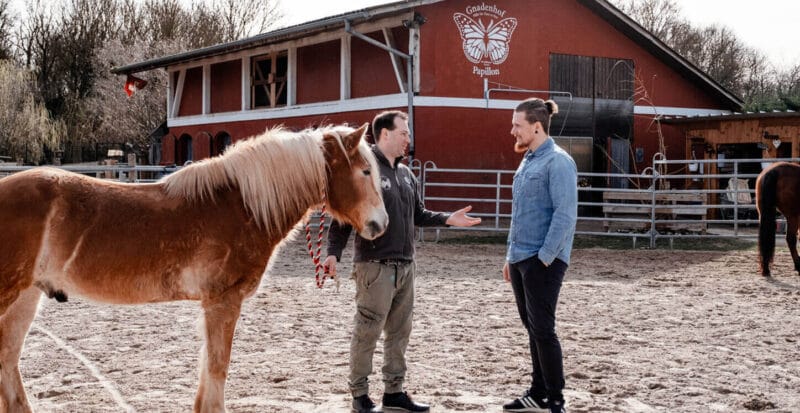
Since 2012, Oliver and Rebecca Bieli have been running the Papillon sanctuary in Alsace, as well as the Swiss Dog and Cat Rescue SHKR.
During our visit, Oliver told us how they came to open the sanctuary in France, how they deal with handicap animals, and the impact working with the animals has on omnivorous people.
Together with photographer Saskia Reichenbach, as well as artist Carina Schmidt and her son, and yours truly (Yannick), we made our way to Munchhouse to see for ourselves how well the animals are doing here. Spoiler: Very good!
Oliver tells us in this interview very emotionally and honestly what he and his team do every day for the welfare of the animals and has impressed us deeply.
How did you come to open a grace farm?
Olivier Bieli: My wife Rebecca and I have been fighting against the unspeakable suffering of street animals for a very long time. Many years ago we founded the Swiss Dog and Cat Rescue SHKR to assist homeless, injured and unwanted street cats and dogs in Spain, France, Germany, Romania and Switzerland.
We organized castration programs and during this work we were repeatedly approached about horses, chickens and other animals that needed our help.
So it came about that we founded a sanctuary to be able to offer lifelong protection to these animals as well. In this phase we also developed ourselves and our understanding of animal welfare: We renounced to eat animals, clothes made of leather, wool
and other animal materials, launched campaigns against the keeping and exploitation of animals in circuses, carnivals, zoos or laboratories. In addition to rescuing and caring for distressed animals, our work today has also become educating people.
"In addition to rescuing and caring for distressed animals, our work today has become educating people."
Olivier Bieli
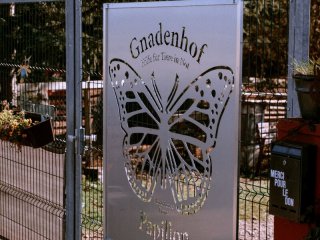
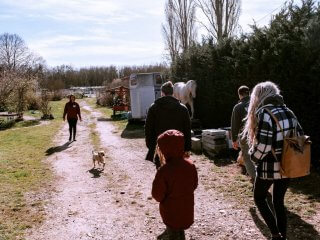
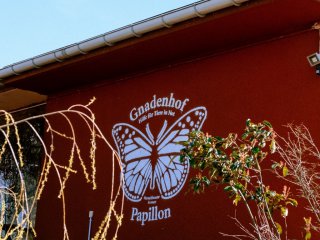
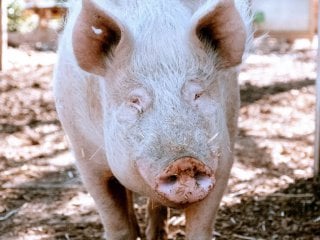
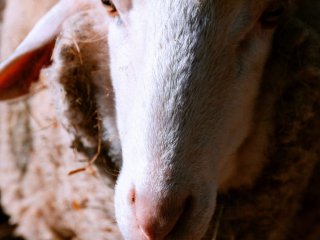
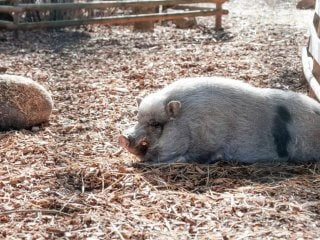
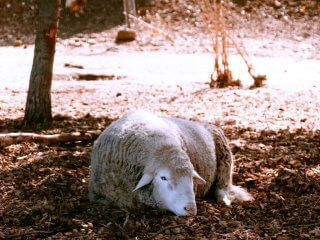
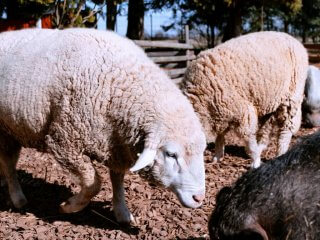
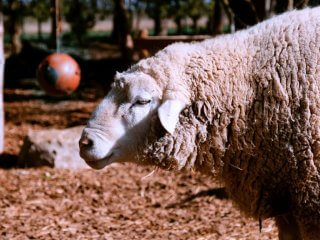

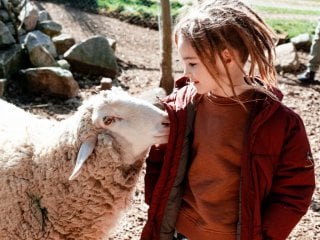
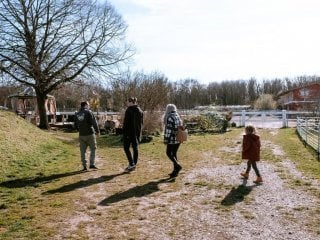

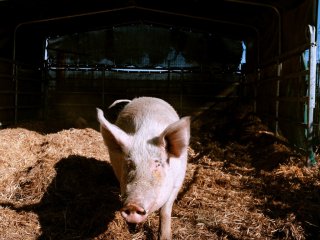
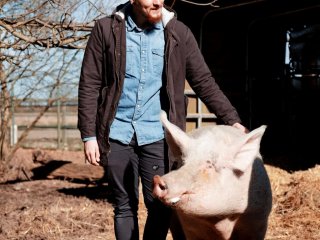
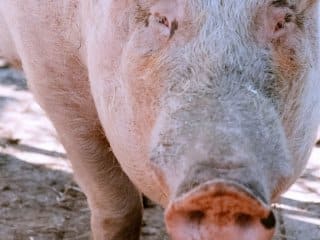
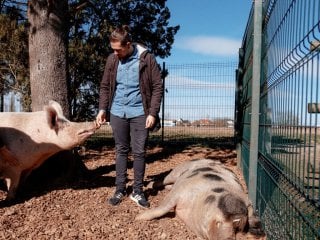
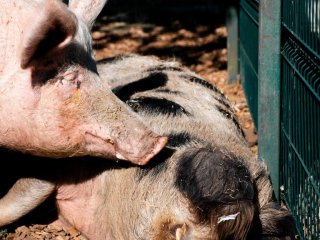
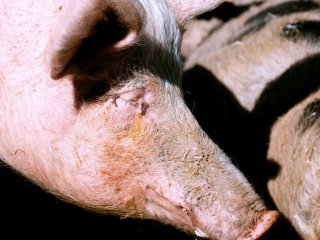
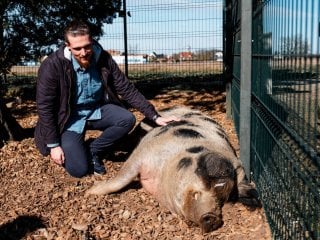
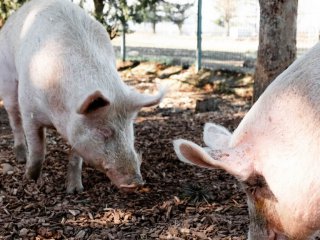
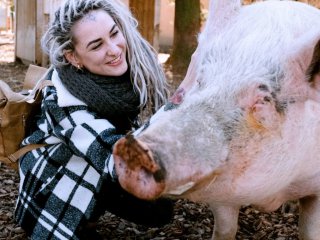
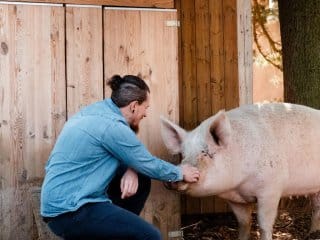
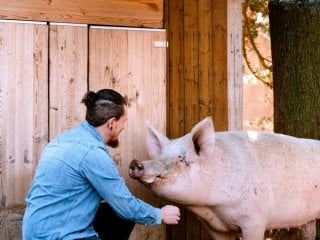
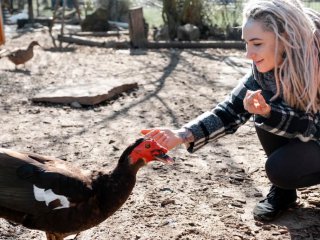
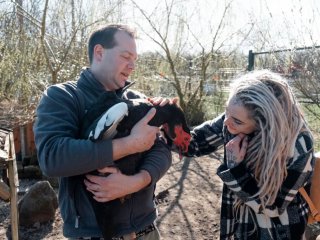
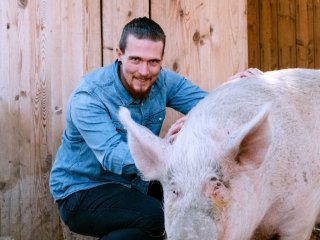
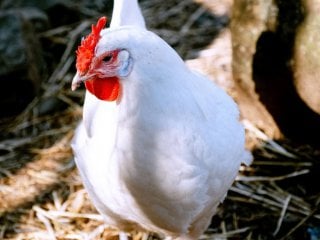
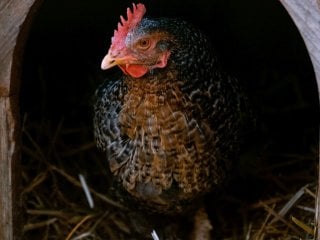
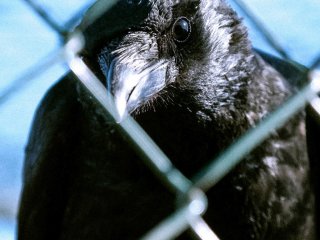
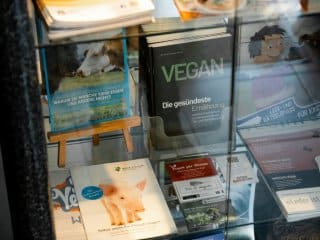
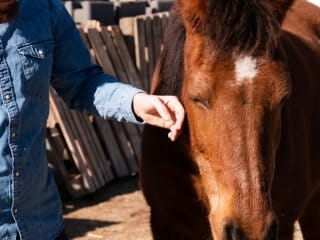
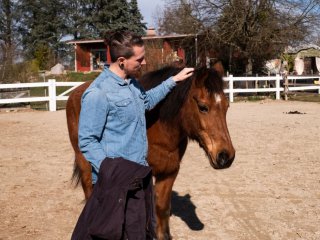
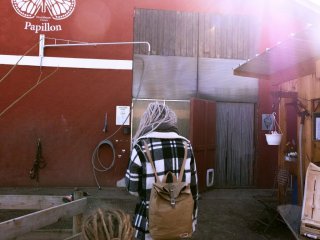
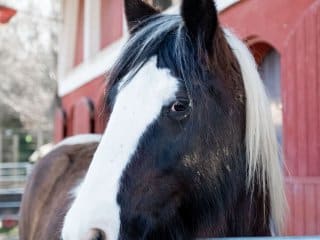

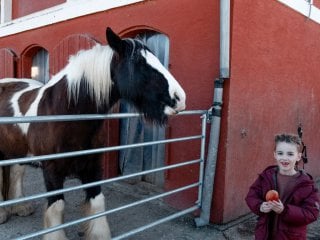
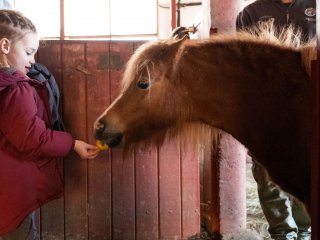
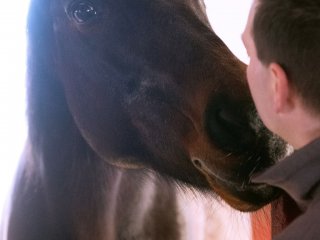
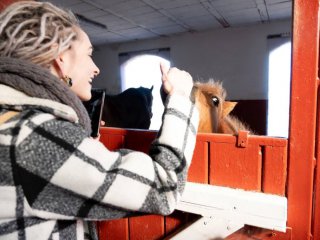
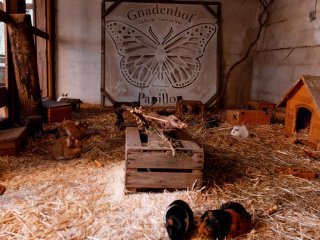
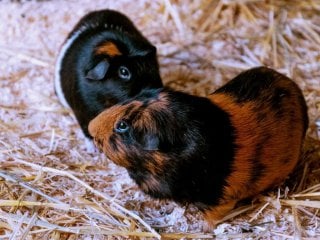
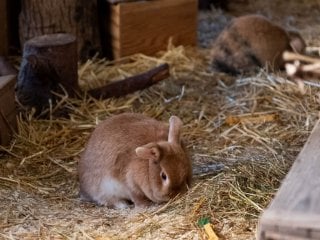
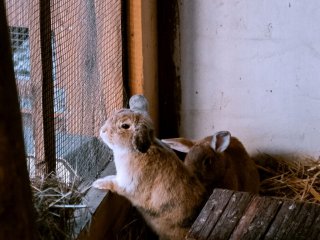
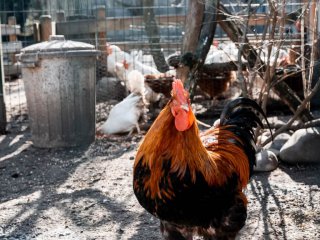

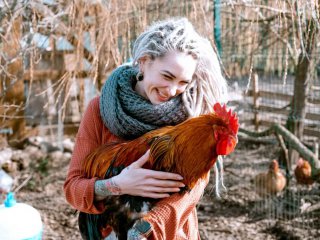
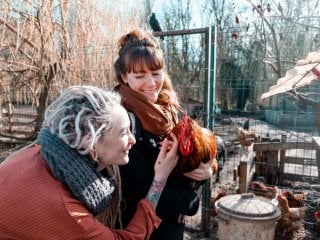
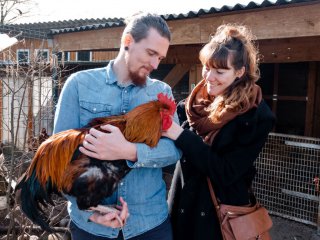
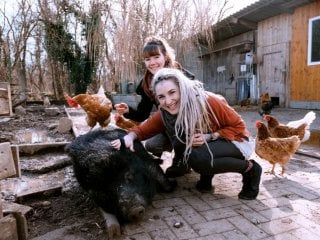
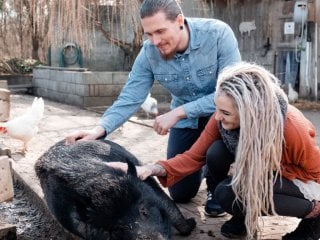
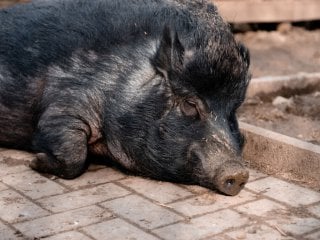
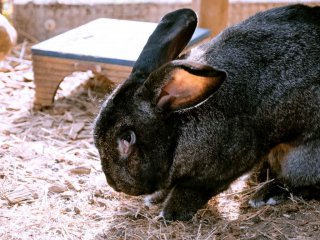

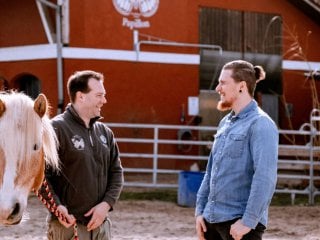
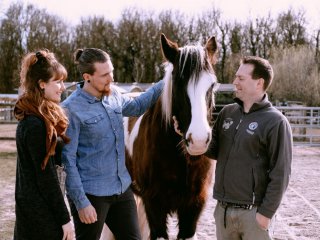
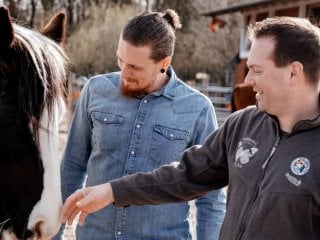
The Papillon sanctuary is located in France - are there any cross-border differences here as far as animal welfare is concerned?
Olivier Bieli: Yes, these differences exist and are sometimes enormous. Thus, dogs may still be kept on short chains here. Fish and chickens are offered for sale in tiny glass containers in garden centers, for example. There are cruel fur farms in the country and for the sake of tradition even cock and bull fights are still allowed, although this would be clearly forbidden according to the current animal protection law. Clear animal quality products, such as duck and goose foie gras, are also still produced here. But that’s exactly why it’s important to live here and do animal welfare: Namely, where there is animal suffering, you can get to work to prevent it. Animal suffering exists on a large scale in every country.
A lot needs to be done there in principle. Fortunately, there are also many French animal welfare activists who are doing a good job.
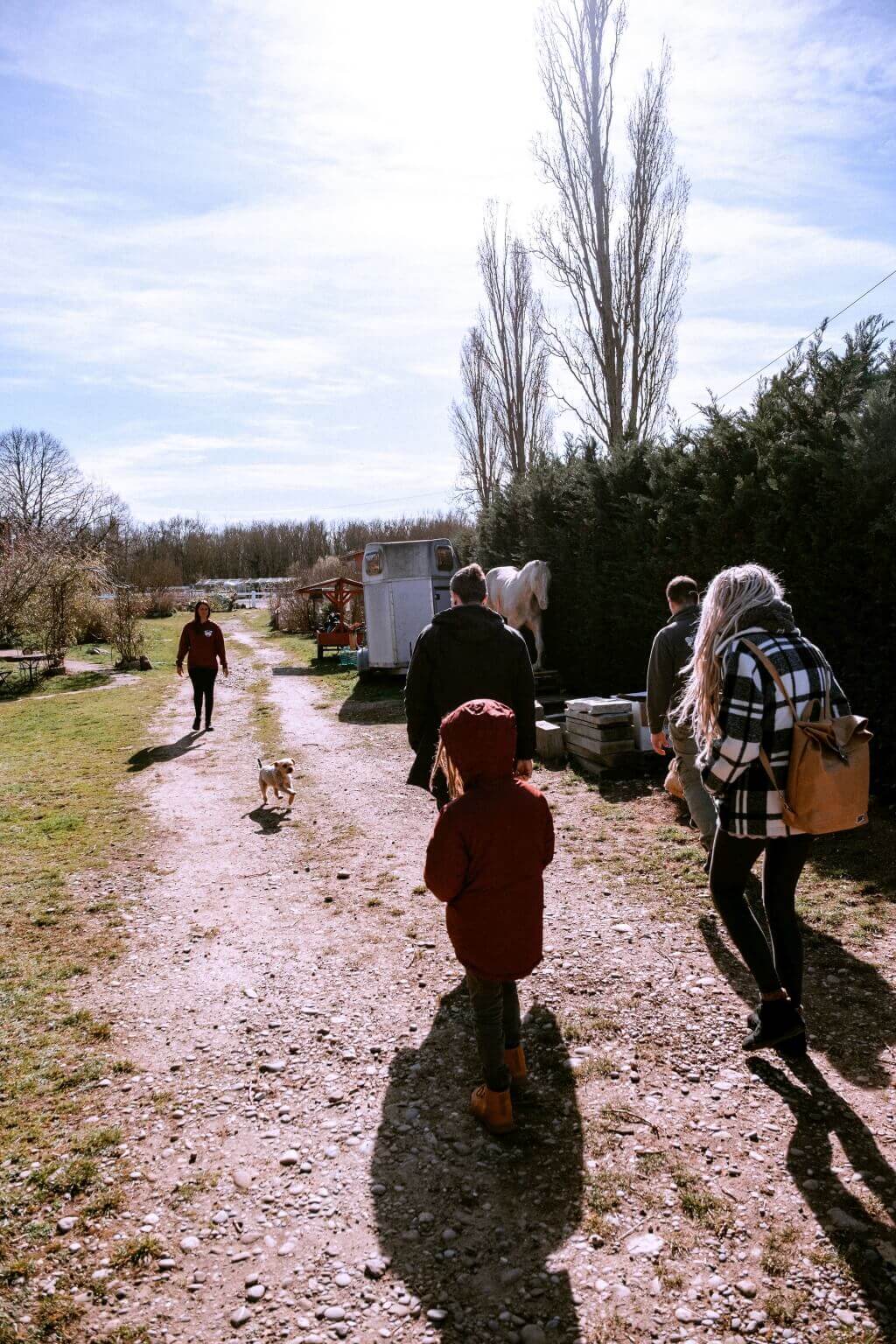
What species of animals have found homes with you to date and how do they usually come to you?
Olivier Bieli: We have horses, pigs, sheep, goats, dogs, cats, turtles, guinea pigs, rabbits, hens, roosters, ducks, geese, pigeons, mice and numerous animals living in the wild here at the Papillon sanctuary. Some of our animals, e.g. our three cows, live on other animal welfare farms because we currently have no room for them here. The fates are unfortunately very diverse, as well as the abuse that we humans, the animals do. We have old, disabled, sick animals with us. Animals from the animal testing laboratory, from the street, abandoned and severely mistreated animals. Confiscated, neglected and unwanted animals. Actually, the whole range of tragedy. We humans take the right to subjugate animals, to torture them, to exploit them, to take children from them and to kill them. We do everything that would be punishable towards other people. And since the animals cannot defend themselves, we stand in between and fight against the prevailing injustice.
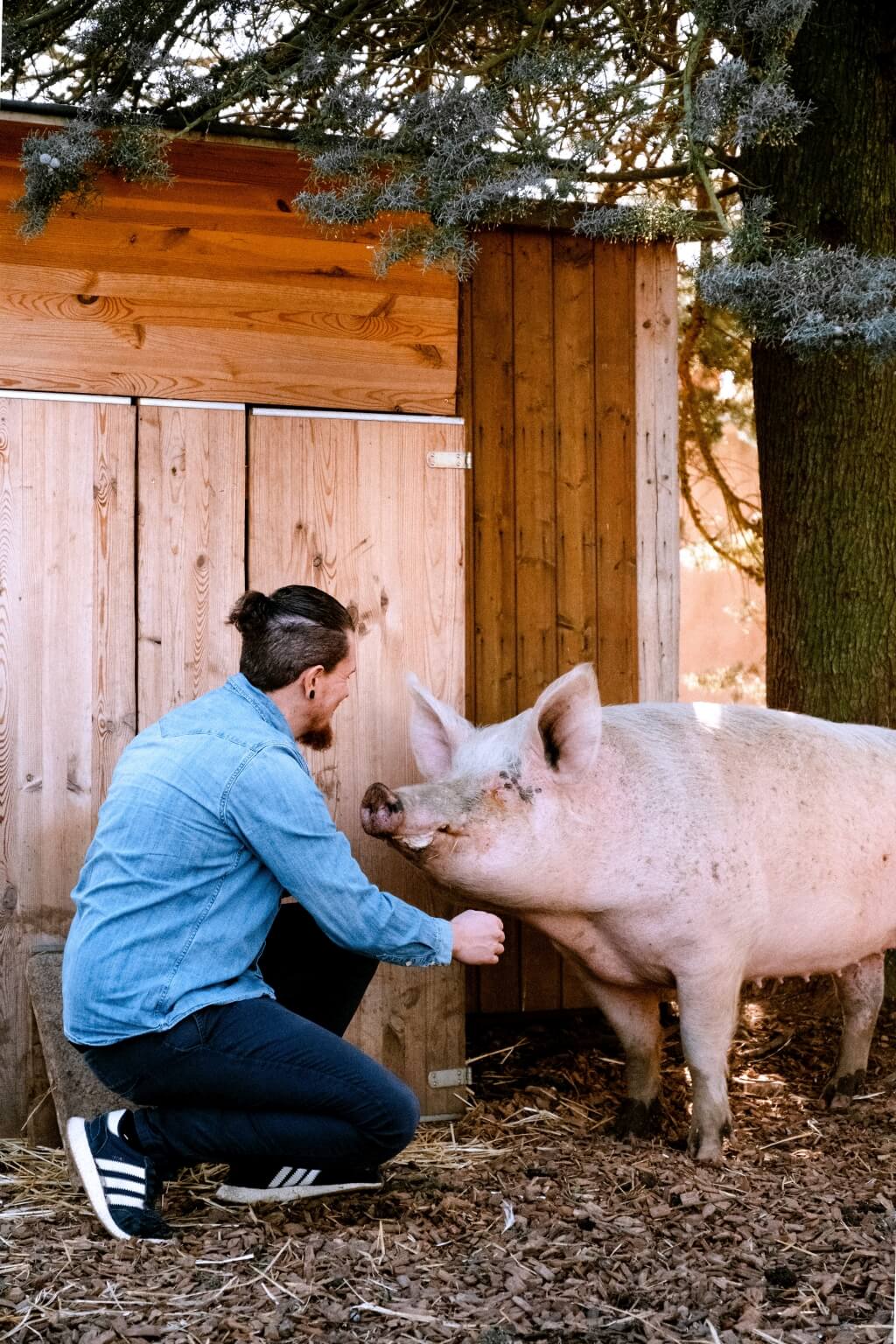
How much freedom do the animals have with you and how do you define this?
Olivier Bieli: None of the animals we have acquired, bred or caught ourselves. Other people have done that and eventually the victims have come to us. Outside our farm, most of our residents would have no chance to survive – the dangers from people and the environment would be too great. And man has made the animals dependent on him. This is perfidious, if one then simply abandons animals or otherwise wants to get rid of them. Although we have to keep our protégés in captivity, we try to offer them the best possible life every day. This can be achieved with plenty of space, numerous employment opportunities, high quality food, veterinary care, attention, love and a sense of responsibility. Social animals, such as horses, sheep, goats and poultry must be allowed to live in groups, the keeping of running animals such as horses in boxes we strictly reject our pigeons do not live in an aviary, but completely free.
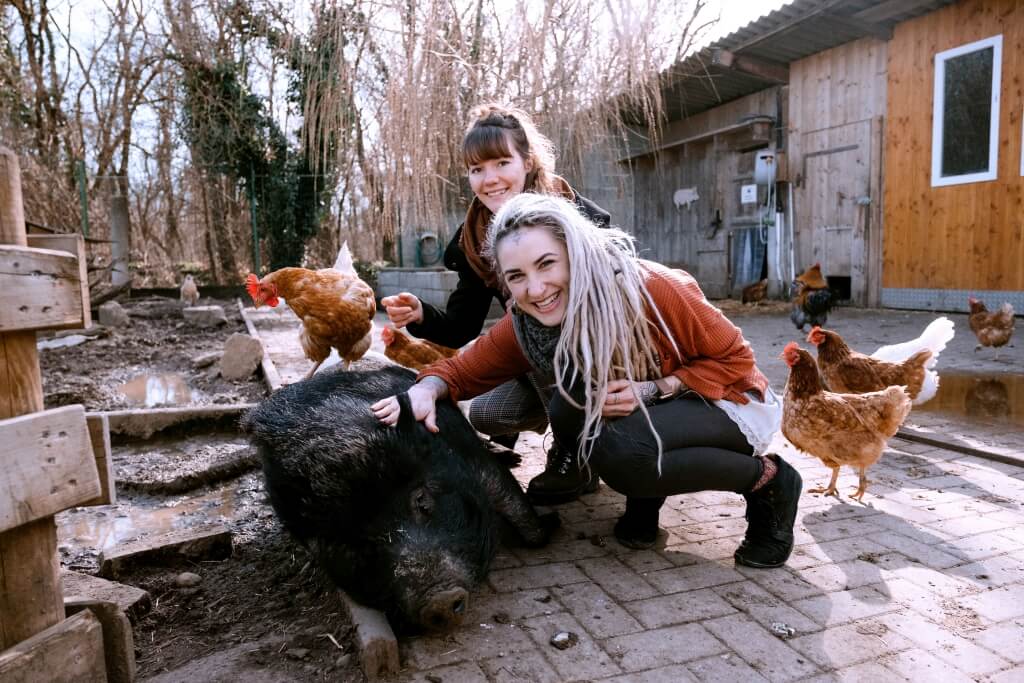
You are also home to so-called handicap animals. What special features do you come up with to make their stay as comfortable as possible?
Olivier Bieli: Animals with a disability are often disposed of like garbage in our society. Often the owners then talk about the best thing to do is to put the animal out of its misery. In doing so, they only redeem their wallets. Animals have to be perfect in our society, conforming to the breed. Deviations in breeding are not tolerated, the animals finally eliminated only because of an optical defect or other claims. If the animals suffer an accident during their lifetime or restrictions after an illness or because of old age, they become a burden and are discarded. An animal hospital once called us because a farmer wanted to have a blind calf killed. Blind animals are not allowed for breeding and are weeded out. With us they are all allowed to live on, we care for and look after the animals that depend on us. Others cope well with their handicap themselves. Our dog Robbie is a paraplegic after a car accident. We have to squeeze his bladder several times a day. In the pack he moves skillfully with a rolling cart, which integrates him completely into the group. Our cat Emma comes from a messie attitude and lost her eye due to an extensive abscess in the face. Cat Chiara lost her front leg, probably after an accident with a lawn mower. We have flightless ravens and pigeons, one-eyed hens, three-legged dogs. The latter two, Timi and Soara, were brutally abused. Both had one paw and the tail chopped off as puppies. They were then thrown dying into the ditch. Thanks to the quick help of passers-by, our rescue team and veterinarians, both survived. All our handicap animals cope well with their handicap and enjoy their lives to the fullest. They would all have died long ago without our help, because they were denied the ability to live.
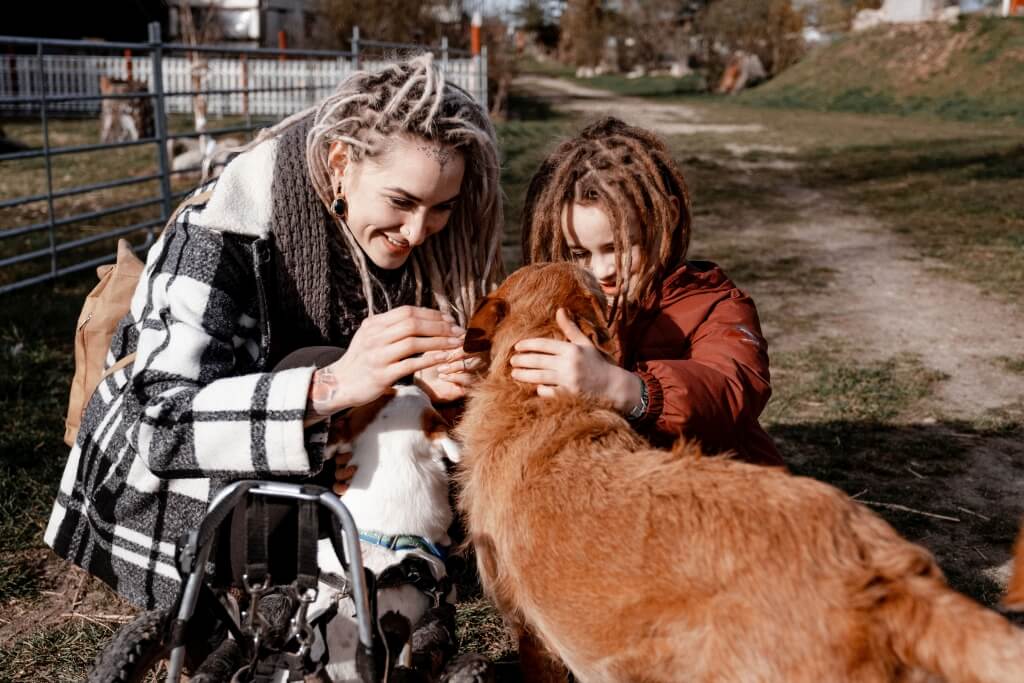
What animal fate has had a particularly lasting impact on you?
Olivier Bieli: All animal fates have a great impact on me. At the same time, this forms my irrepressible motivation to fight every day for animals in need and their unrecognized rights, and to suffer many disadvantages in the process. I have been marked by the fate of puppies doused with hot tar, rabbits going through hell in the laboratory, crippled dogs, deer, badgers and foxes hit by cars and left lying around, rabbits kept singly and in cramped cages, chickens plucked naked from stress, pigs screaming in terror. But I am also influenced by fates that show how loving and forgiving animals can be. A man doused his dog with boiling water, she had the most severe burns, but still loved people after her successful fight for survival. I am also particularly influenced by the fate of our disparagingly named farm animals, which are not farm animals but simply normal animals. Our rescued cows and pigs are such delicate and loving creatures, so I just can’t understand why we pet dogs and cats and treat cows, bills – and also many other animals like chickens, sheep, goats, turkeys, ducks, geese – like lowest class creatures, raping them, exploiting them, gassing them, stabbing them, skinning them, dismembering them and eating them. This is unsurpassable in terms of cold-bloodedness.
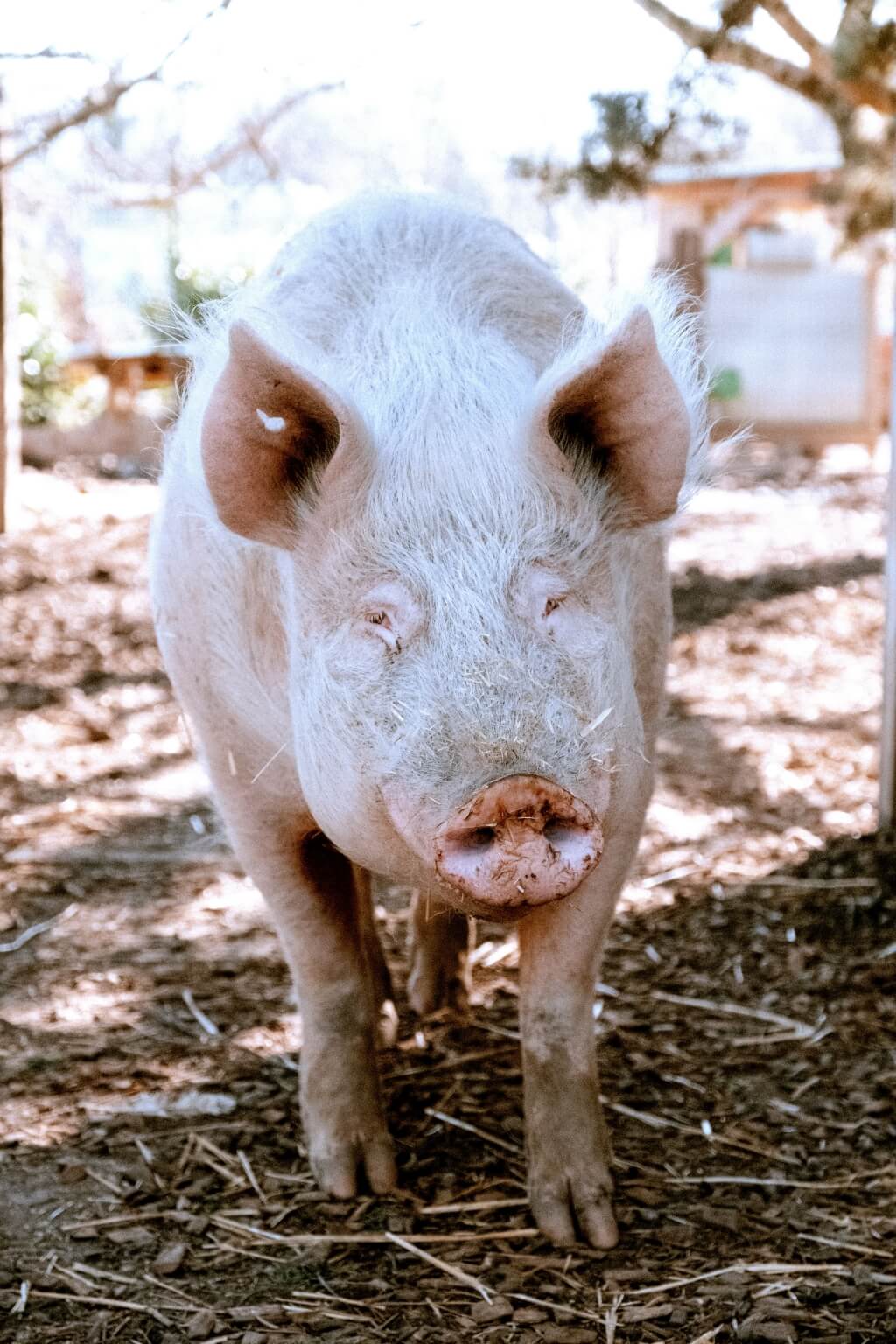
What was your most beautiful experience at the Gnadenhof?
Olivier Bieli: The nicest thing is when rescued animals arrive with us and you notice that they know they are being given a new life here. Here they are appreciated, loved, respected, treated with dignity and never exploited. And then there are those moments when people, because of these animals, rethink their attitude to food, clothing, entertainment and other things in life and change. Then we and our animals did everything right and showed people that suffering and exploitation do not only take place in faraway countries, but here, now and in our midst. Every day. Everyone can prevent animal suffering by rethinking and adjusting their actions.
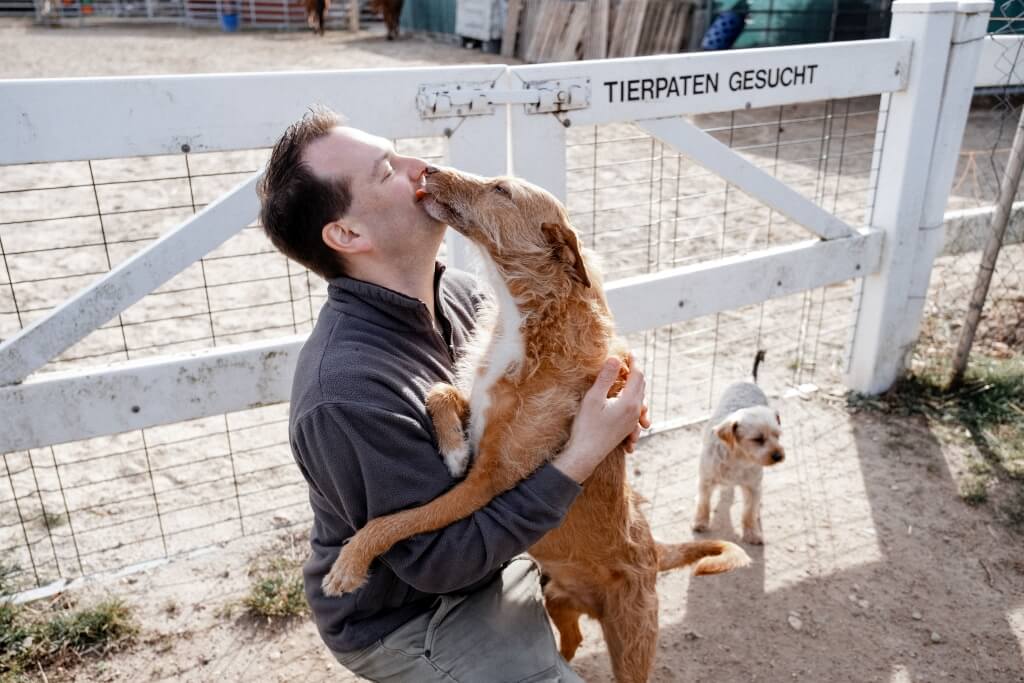
Are there also obstacles that are put in your way in your daily work?
Olivier Bieli: Yes, again and again. When you stand in front of animals, you have many opponents. Because a lot of it is built on the suffering of animals. The dairy and meat industry with its associations and partners, the entertainment industry, i.e. zoos, circuses, animal parks, animal shows, the clothing industry, where masses of down, leather, fur, silk, wool and other products derived from animals are sold, hunters, breeders and many others who think they can treat animals as it suits them. And many people who simply have a lot of ignorance and prefer to believe fairy tales that have been spread for years instead of the facts. But there are more and more people who fight back and no longer think that animals must serve our needs and desires.
How do you finance the grace farm?
Olivier Bieli: Food, medical care, enclosure maintenance, trips to the vet and much more costs a lot of money. In addition to the Papillon sanctuary, we also run our own animal shelter in Western Romania, which also needs some funding. We try to collect donations by means of animal sponsorships, animal protection runs, yard parties and other events in order to be able to provide for our charges around the clock. Unfortunately, not as many donations are collected as costs are incurred on a daily basis. That’s why my wife Rebecca and I work full-time to be able to cover our animal welfare work financially.
"Unfortunately, we don't get as many donations as we incur costs on a daily basis. That's why my wife Rebecca and I work full-time to be able to cover our animal welfare work financially."
Olivier Bieli
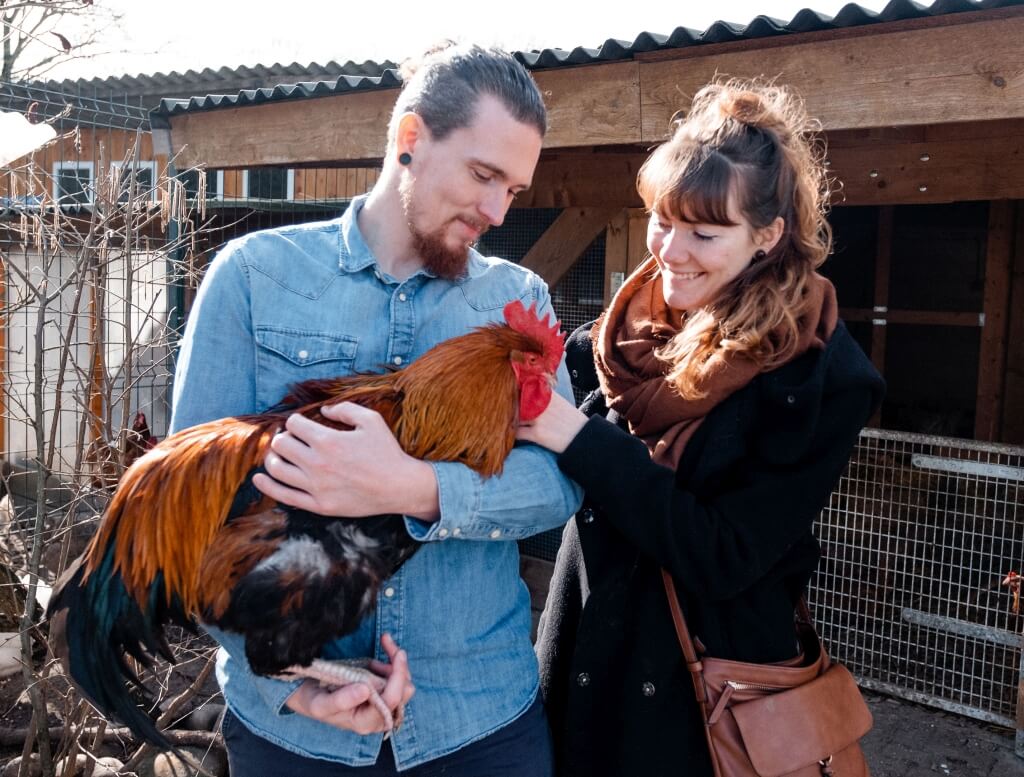
What are the options for people who would like to see the Gnadenhof on site?
Olivier Bieli: We regularly hold visiting days with integrated guided tours where people can meet all our animals and see our animal welfare work. Three times a year we also host a big festival, with booths, vegan buffet and other entertainment. You can contact us at any time via our homepage or our Facebook page.
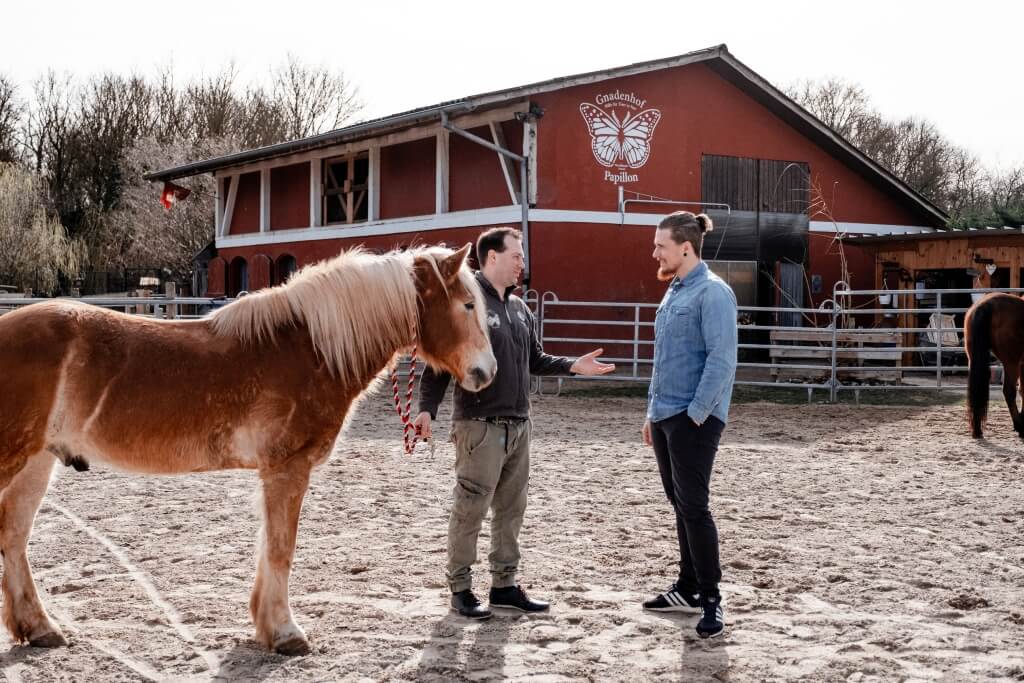
Are your gates also open to people who eat meat?
Olivier Bieli: Yes, absolutely. Either way, we are against any form of exclusion and for love, acceptance and respect. Many people who (still) eat meat or consume other animal products support us with donations, sponsorships or on site as helpers. Why should we exclude them? Each person, must have his time to realize that in our treatment of animals some things go wrong, are unjust or even cruel. We are indoctrinated from childhood with untruths about what we eat and how we treat animals. We too needed time before we saw the connections and the lies were simply no longer acceptable to us. It is important, beautiful and valuable when people who are not yet ready to live vegetarian or vegan, seek the proximity of our animals. It has already opened the eyes of many a helper. A meat-eating policeman and top athlete from Luxembourg became vegan after a visit to our pigs – and today achieves his athletic goals better than before. Another visitor also recently became vegan through our grace yard. Since then, she also regularly attends our vigils in front of the slaughterhouse in Basel. We have a few such examples. This motivates us to continue.
"A meat-eating police officer and top athlete went vegan after visiting our pigs - and is now achieving his athletic goals better than ever."
Olivier Bieli
What opportunities do people have to support you?
Olivier Bieli: Anyone can become an animal sponsor or give away an animal sponsorship. This helps us to provide the best possible care for our animals and helps to secure the future of our animal welfare project. You can also make individual donations, collect for us at weddings, birthdays or funerals, or mention our animal welfare work in your will. Again and again we are looking for loving homes for animals that cannot find a place with us. We are happy about every adoption of an animal from the animal welfare. You can organize cake stands or flea markets, the proceeds of which go to our work, or participate as a runner or sponsor in one of our animal protection runs. Of course, you can also volunteer on site, share our flyers or our posts on social media.
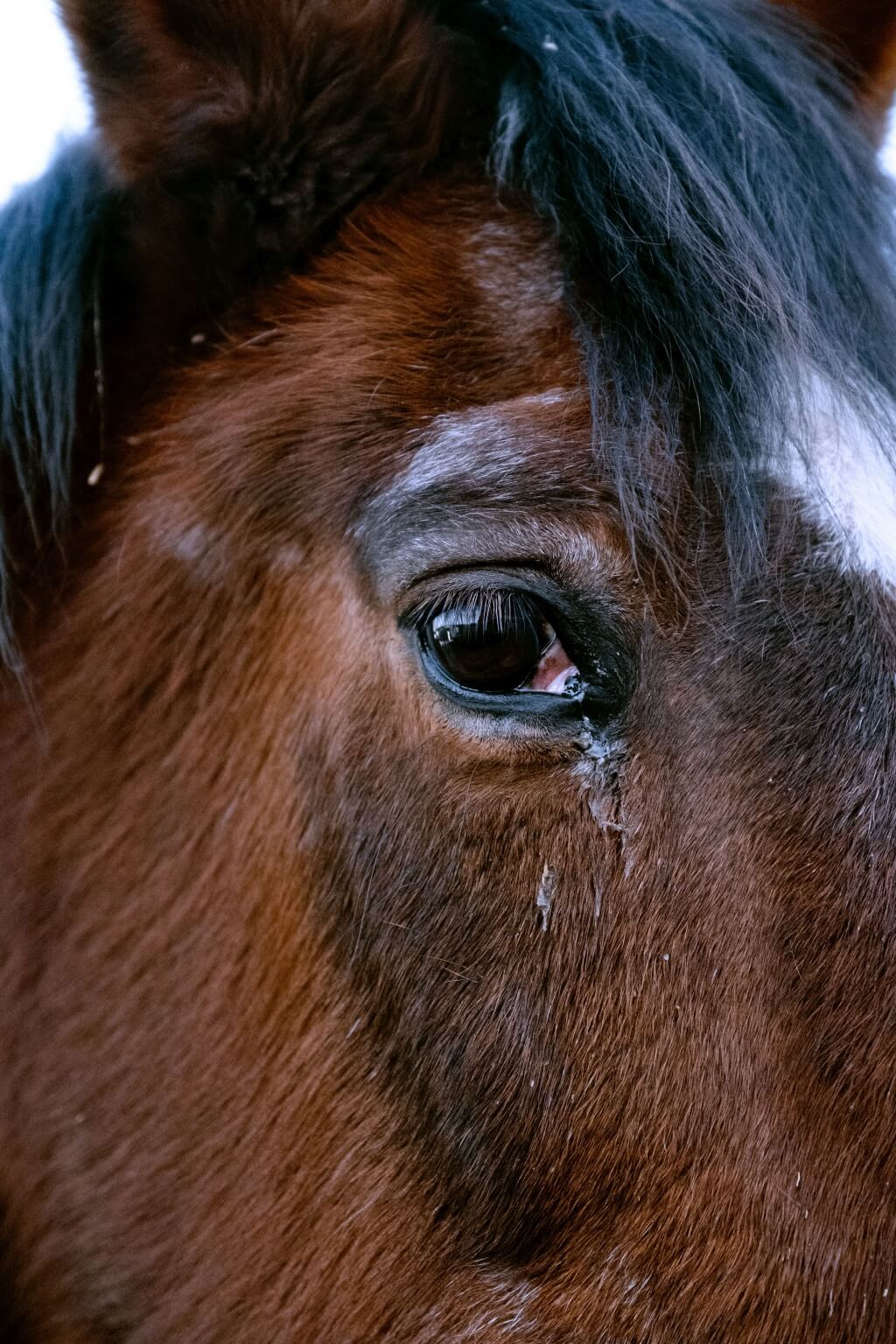
Is there anything you would like to give people along the way?
Olivier Bieli: Put yourselves in the shoes of the animals from which you obtain your products: In the mother cow that has to give up her children for us so that we can drink her breast milk. Into the pig that must sacrifice its body for us to eat. In the horse that has to do unnatural tricks in the circus for our amusement. In the lion, which has to live a dreary life in the zoo all his life and give birth to children so that they attract visitors. To the fish that have to suffocate in agony so that children can eat fish sticks. Just think of all that animals have to suffer so that we can eat them, dress them, torture them, impregnate them and kill them. If everyone thinks about this, the world will become a little more vegan – and therefore better!
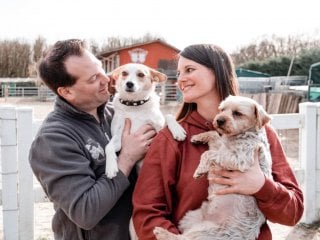
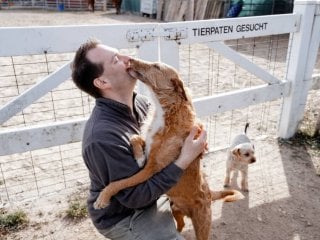
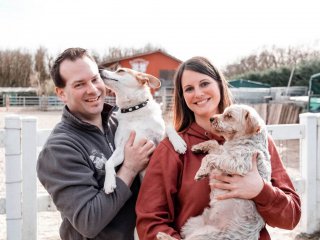
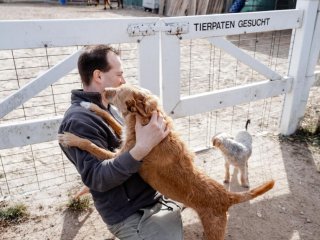
Gnadenhof Papillon – Help for animals in need
www.gnadenhofpapillon.org
Swiss Dog and Cat Rescue SHKR
www.shkr.ch
They are recognized as a non-profit organization and are tax-exempt. The donation account for animal sponsorships, donations, legacies, bequests:
Donation account Gnadenhof Switzerland:
Basellandschaftliche Kantonalbank BLKB, 4410 Liestal
IBAN CH31 0076 9403 5093 2200 1
BIC/SWIFT: BLKBCH22
Association help for animals in need
Rhygarten 5
CH-4302 Augst
Donation account Gnadenhof France and EU area:
Caisse de Crédit Mutuel
IBAN: FR76 1027 8030 5100 0205 6880 137
Association “Aide pour Animaux en Détresse
SHKR
Cantonal Bank of Basellandschaft
4410 Liestal
in favor:
IBAN CH94 0076 9400 7484 1200 1
BIC: BLKBCH22
SHKR Switzerland. Dog and cat rescue
4302 Augst
Postfinance account 40-44-0
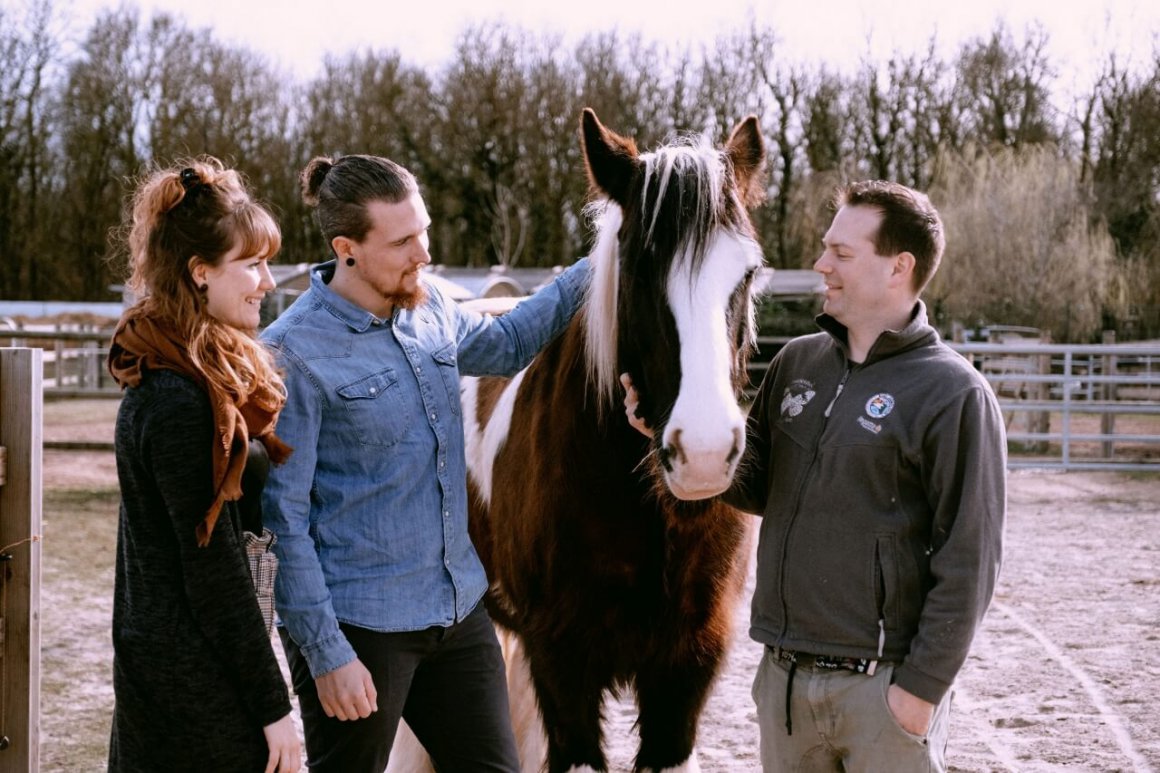
Many thanks to Saskia Reichenbach for the beautiful and emotional photos. By the way: She donates 10% of all upcoming shoots to the charity Papillon – so quickly secure your shoot at: www.facebook.com/pg/SaskiaReichenbachPhotography
Many thanks also to artist Carina Schmidt, who will exhibit her paintings at the “This Is Vegan” brunch on March 22 and donate a portion of the proceeds here.
All info: www.flutterby-effect.de and here in the interview http://this-is-vegan.com/vegan-taetowieren-darauf-muesst-ihr-achten-carina-schmidt-von-flutterby-effect-im-interview/
Want to support the work of This is Vegan?
On our pages you will find affiliate links. If you buy your favorite products through them, we receive a commission, which automatically supports us.
By purchasing sustainable reusable cups from us, you support
Gnadenhof Papillon
and/or
Sea Shepherd
.
Alternatively, you can contact us
here on Instagram on
YouTube
, Follow Linkedin
or Pinterest
, listen to our podcast, subscribe and rate directly here:
Jeder Euro hilft, unsere Vision voranzutreiben.
Danke.
🙏🏽💚
Nächster Artikel
Niko Rittenau about myths around vegan nutrition
- Posted on
- Yannick
Empathy in the belly – Oli P. on vegan nutrition, animal welfare and sustainability
- Posted on
- Yannick
Vegan nutrition against the Corona virus – Dr. med. Petra Bracht in the interview
- Posted on
- Yannick
Veganuary! CEO Ria Rehberg about new records at vegan month 2023
- Posted on
- Yannick
Vegan is unhealthy?! Gordon Prox on the future, his start-up and family
- Posted on
- Yannick
Vegan athletes: Top 10 athletes & their plant-based diet
- Posted on
- Daniel Köhler
Pens to plant! – Interview with Sprout World founder Michael Stausholm
- Posted on
- Yannick
The Hype Around Oat Milk – The Oatly Germany CEOs in Interview
- Posted on
- Yannick
